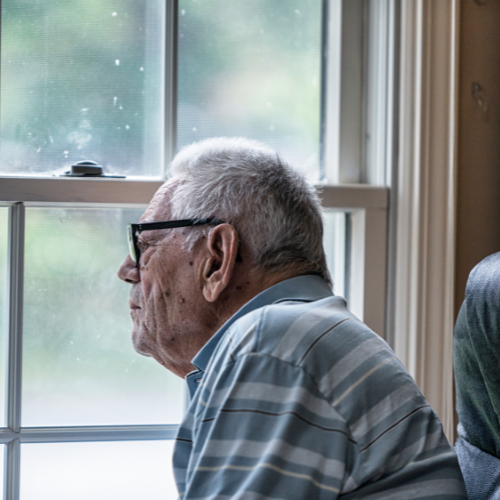
Understanding Dementia
Dementia is a complex condition affecting millions worldwide. Dementia encompasses a range of cognitive impairments, including memory loss, language difficulties, and challenges with problem-solving. Contrary to popular belief, dementia is not a normal part of aging but a progressive neurological disorder with various causes. While it can manifest in different forms, such as Alzheimer’s or vascular dementia, each presents unique challenges requiring tailored care and support. Early recognition of symptoms is crucial for timely medical intervention and accessing resources like those offered by a dementia care facility in Northville.
The Stigma Surrounding Dementia
Unfortunately, dementia is often shrouded in misconceptions and stigma, which can profoundly impact the lives of those affected and their loved ones. The stigma surrounding dementia can manifest in various forms, from societal attitudes and beliefs to discriminatory practices and lack of understanding.
One of the most prevalent misconceptions is the notion that dementia is an inevitable part of aging, leading to a dismissive attitude toward the condition and its impact on individuals and their families. Additionally, there is a pervasive belief that individuals with dementia are incapable of leading meaningful lives, which can result in their marginalization and exclusion from social and community activities.
The stigma surrounding dementia can also contribute to a reluctance to seek medical attention or engage in support services, as individuals and their families may fear judgment, discrimination, or social isolation. This delay in seeking help can exacerbate the challenges associated with dementia and impede access to vital resources and interventions.
Impact of Stigma on Individuals with Dementia
The stigma associated with dementia can have far-reaching consequences for those living with the condition. It can contribute to feelings of shame, isolation, and a diminished sense of self-worth, further compounding the emotional and psychological challenges they already face.
Individuals with dementia may experience discrimination in various aspects of their lives, including employment, healthcare, and social settings. This can lead to a loss of autonomy, dignity, and opportunities for meaningful engagement, ultimately impacting their overall well-being and quality of life.
Moreover, the stigma surrounding dementia can create barriers to accessing essential support services and resources. Families and caregivers may hesitate to seek help due to fear of judgment or lack of understanding, which can exacerbate the burden of care and contribute to caregiver burnout.
Debunking Misconceptions About Dementia
Overcoming the stigma surrounding dementia begins with challenging and debunking the prevalent misconceptions that fuel it. It is crucial to recognize that dementia is a medical condition, not a personal failure or a natural consequence of aging.
Contrary to popular belief, individuals with dementia can lead fulfilling lives with the proper support and accommodations. While cognitive impairments may present challenges, they do not define an individual’s worth or potential for meaningful experiences and relationships.
Additionally, it is essential to understand that dementia does not discriminate based on age, gender, or socioeconomic status. It can affect individuals from all walks of life, and its impact extends beyond the person diagnosed, affecting families, caregivers, and communities.

Promoting Empathy and Understanding Towards Individuals with Dementia
Promoting empathy and understanding towards individuals with dementia is crucial in creating a supportive and inclusive environment. Here are some ways to foster empathy and understanding:
- Walk in Their Shoes: Seek to understand the lived experiences of individuals with dementia and their caregivers. Attend support group meetings, read first-hand accounts, or participate in dementia simulation exercises to gain a deeper appreciation for their challenges.
- Embrace Person-Centered Care: Recognize that individuals with dementia are more than their condition. Embrace a person-centered approach that acknowledges their unique personalities, preferences, and life stories. Treat them with dignity and respect, and involve them in decision-making whenever possible.
- Encourage Social Inclusion: Create opportunities for individuals with dementia to participate in social and community activities. Promote inclusive environments that foster meaningful connections and combat isolation and loneliness.
- Support Caregivers: Acknowledge and support the vital role of caregivers, who often shoulder significant emotional, physical, and financial burdens. Offer respite services, educational resources, and support networks to help alleviate caregiver stress and burnout.
By promoting empathy and understanding, we can create a more compassionate and inclusive society that recognizes the inherent worth and dignity of individuals with dementia, fostering a sense of belonging and acceptance.
Conclusion
Overcoming the stigma surrounding dementia requires a collective effort from individuals, communities, and society as a whole. By challenging misconceptions, promoting education and awareness, fostering empathy and understanding, and providing support for caregivers, we can create a more inclusive and compassionate environment for those affected by this condition.
Dementia does not define an individual’s worth or potential for leading a meaningful life. With the proper support and accommodations, individuals with dementia can continue to thrive, maintain their dignity, and contribute to their communities in meaningful ways.If you or a loved one is facing the challenges of dementia, consider exploring the exceptional care and support services offered by Pomeroy Living Northville. Our dedicated team of professionals is committed to providing a compassionate and nurturing environment tailored to each individual’s unique needs.
